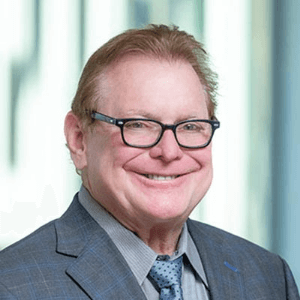Abstract:
Introduction: Approximately 1-3% of patients with total joint replacements develop bacterial or fungal infections which respond poorly to antibiotic treatment. These infections are often serious enough to warrant removal, debridement, and replacement of the implant. There is a need to provide a non-invasive solution for treating infections occurring on medical implants.
Methods: Coupons (19 mm x 25.4 mm x 2 mm) composed of 430 stainless steel, were inoculated with MRSA M2 Methicillin and incubated for one week at 37 C in Tryptic Soy Broth (TSB) to culture biofilms. M2 MRSA was minimally susceptible to 1 µg/ml of vancomycin. After biofilm growth, the coupons were washed to remove non-adherent bacteria and transferred to 50 mL tubes containing 40 mL TSB with and without vancomycin. Bacteria were exposed to an AC-EMF at 10.7 mTelsa at low radio frequency of 30-100kHz frequency for varying times to heat the coupons to 45, 55, 60, and 65 degrees C. After exposure to EMF and overnight incubation, the coupons were washed four times with PBS. Biofilm bacteria were removed from the coupons using a plastic scraper. Bacteria in the culture supernatant and in the biofilm were enumerated by plating on agar plates and colony-forming units (CFU) were determined.
Results: The increased temperatures had little effect on the CFU/mL when cultured without the addition of vancomycin. However, in the presence of 1 µg/ml of vancomycin, temperatures increase of 45C and 55C resulted in significant reductions of CFU. The CFU had a log 3 reduction at 45C and went below the limit of detection at 55C. Increases in temperatures from 37 C to 55C and to 65C results in reductions of CFU’s dropped to below the limit of detection in the supernatant at 65C.
Discussion: EMF at very low to low frequency and low Tesla can eradicate biofilm when externally applied through AC wires with MIC amounts of antibiotics. This may result in in the non-invasive treatment of biofilm related infection on implants or give higher rates of success with procedures like DAIR.
Biography:
Gerhard E. Maale has accumulated extensive years of postgraduate education across various fields, including biomedical engineering, molecular biology, DNA and RNA biochemistry, clinical chemistry, biofilm engineering, pharmacology, orthopedic oncology, and pathology. In the realm of rapid molecular diagnostics, he served as the Chief Medical Officer (CMO) at Abbott, overseeing rapid bacteria identification for orthopedic platforms through 16S DNA deep sequencing using IBIS technology (electrospray double mass spectrometry). His professional journey includes roles such as Associate Professor in the Department of Orthopedic Surgery at Texas Tech University School of Medicine (1984-2000), Clinical Associate Professor in Orthopedic Surgery at UT Southwestern (1988-1996), and Consultant to William Beaumont Army Hospital Orthopedics (1988-2002). He also held positions as Clinical Associate Professor of Orthopedics at Texas Tech in Lubbock and El Paso (1988 2002) and Associate Professor in the Department of Pathology at Texas Tech University School of Medicine (1984-2000). Gerhard E. Maale directed Orthopedic Oncology and completed a Fellowship at the University of Texas Southwestern Medical School (1990 2001). He served as a Consultant for the Montana State University Center for Biofilm Engineering from 2000 to 2010. Throughout his career, he has received several honors, including a medical student research award from the University of Florida College of Medicine for 1975 and 1976, the Journal of Trauma Residents' Award for the Northeast Regional Competition (1983-1984 NIH and NCI sponsored for Oncology Fellowship), and Teaching Excellence Awards for Southwestern Orthopedic Residents in 1990 and 1992. Currently, Gerhard E. Maale is involved in various roles and projects, including working as a consultant for Neuro Resource Group, serving as a Lead Investigator for research at Montana State University and Rapid Molecular Diagnostics LLC. He is also a Clinical Professor of Orthopedic Surgery at Baylor Regional Medical Center at Plano, Director of Orthopedic Oncology at Medical City Hospital Plano, CMO at Zyvex Labs Lab, Inc., and Professor of Orthopedic Surgery at Oklahoma State University since 2020. His work spans topics such as orthopedic applications of a cutaneous handheld neurostimulator, inhibition of biofilm formation, antibiotic-loaded pellets, and local elution levels in patients with periprosthetic joint infections.




